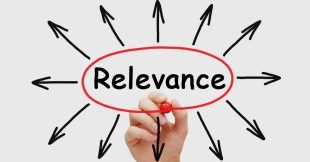Genom att utbilda mig skulle jag få ett bättre jobb än pappa, tjäna mer pengar än vad han giorde och slippa slita ut min kropp medan jag gorde det. Helt enkelt kunna leva ett godare liv än vad han hade gjort. l en rent objektiv och materiell mening har jag också lyckats bättre med det än nästan alla andra som har gjort samma resa. En arbetargrabb som steg på tåget så fort han tagit studenten vilket bara en av tjugo med samma bakgrund som jag gjorde vid den här tiden. Hur jag...
Read More »Holiday Math Activities
Long holidays are nice. But sometimes, amid all the relaxation, you can feel your brain getting a bit mushy. What do you do then? Personally, I usually solve crosswords, chess problems, and the occasional mathematical puzzle to keep the grey brain cells active over Christmas and New Year… [embedded content]
Read More »Minnenas sorl
.[embedded content] Hansson de Wolfe United — poesi och musik i vacker förening.
Read More »Genesarets Sjö
.[embedded content]
Read More »Top 20 Economics Blogs 2023
Top 20 Economics Blogs 2023 Economics bloggers contribute varied content, making it an accessible way to stay informed without delving into the density of academic journals. Below, we’ve compiled a list, in no particular order, of blogs that we at INOMICS frequently turn to for engaging and informative articles covering a broad range of economic topics … 7. Naked Capitalism Naked Capitalism, launched...
Read More »Decision making — trustworthiness vs relevance
Decision making — trustworthiness vs relevance The random assignment plus masking are supposed to make it likely that the two groups have the same distribution of causal factors. It is controversial how confident these measures should make us that they do this. This issue bears on the trustworthiness of causal claims backed by RCTs. As we noted, trustworthiness is the central topic of many other guides. But we aim to move beyond that; we concentrate on...
Read More »Da Doo Ron Ron
Da Doo Ron Ron .[embedded content] Phil Spector’s Wall of Sound masterpiece. And that 1960s choreography! I just love it.
Read More »Why you shouldn’t day trade!
Why you shouldn’t day trade! .[embedded content]
Read More »Oiche Chiúin
.[embedded content]
Read More »Soon the angels will land
Soon the angels will land .[embedded content] Forget devilry and malice Forget everything I’ve done out of spite I love you so deeply … Soon the angels will land Soon the morning is ablaze Do I dare say that we have each other Do you dare lay your cheek in my hand
Read More » Lars P. Syll
Lars P. Syll


